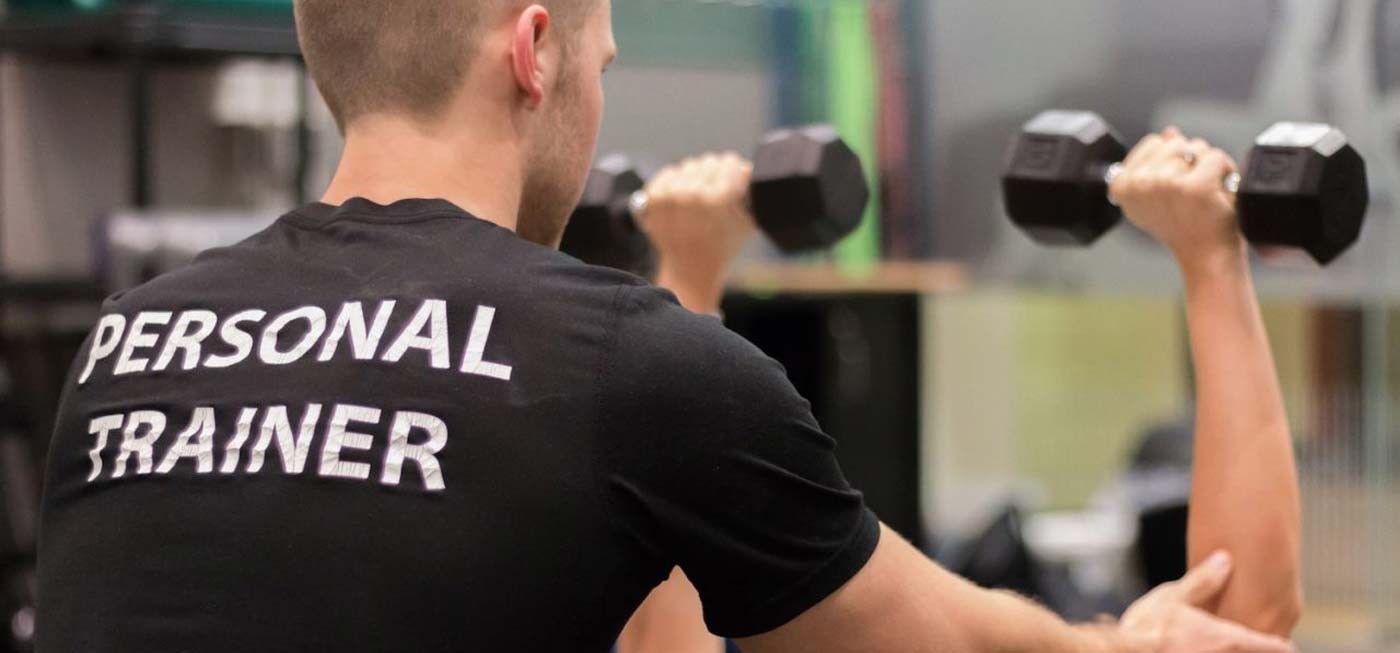What is Fitness Trainer?

A fitness trainer is a professional who provides guidance, support, and motivation to individuals who want to improve their physical fitness and overall health. They help their clients set fitness goals, create personalized workout plans, and provide guidance on proper exercise techniques.
Fitness trainers may work with clients one-on-one or in small groups, and they may specialize in a particular area of fitness, such as strength training, cardiovascular exercise, or sports-specific training. They may also provide advice on nutrition, lifestyle changes, and injury prevention.
Fitness trainers may work in a variety of settings, including gyms, health clubs, community centers, and private studios. They may also work as independent contractors or start their own fitness businesses.
How to become Fitness Trainer?

Becoming a fitness trainer typically requires a combination of education, training, certification, and experience. Here are the general steps to becoming a fitness trainer:
- Obtain a high school diploma or equivalent: A high school diploma or GED is usually required to become a fitness trainer.
- Pursue a degree in a related field: While a degree is not always necessary to become a fitness trainer, having one can be beneficial. Relevant fields of study include exercise science, kinesiology, sports medicine, and physical education.
- Gain practical experience: Experience in the fitness industry can be gained through internships, volunteer work, or entry-level positions at gyms or health clubs. This experience can help you develop your skills, learn from experienced trainers, and build your network.
- Get certified: Most gyms and fitness facilities require trainers to have a certification from a reputable fitness organization, such as the National Academy of Sports Medicine (NASM), the American Council on Exercise (ACE), or the National Strength and Conditioning Association (NSCA). These organizations offer certification programs that cover topics such as exercise science, anatomy and physiology, nutrition, and program design.
- Specialize: Once you are certified, you may choose to specialize in a particular area of fitness, such as strength training, group fitness, or sports-specific training. This can help you differentiate yourself from other trainers and attract clients who are interested in your particular area of expertise.
- Continue education: To maintain your certification, you will need to complete continuing education courses or workshops. This can help you stay up-to-date with the latest research and techniques in the industry and improve your skills as a trainer.
- Build your client base: Once you have your certification and experience, you can start building your client base. This can be done through networking, social media, word-of-mouth, or by working for a gym or fitness facility.
Fitness Trainer: Eligibility
The eligibility requirements to become a fitness trainer vary depending on the country and organization. However, here are some general eligibility requirements:
- Age: Most certification programs require you to be at least 18 years old.
- Education: A high school diploma or equivalent is usually required, and some certification programs may require a degree in a related field.
- CPR/AED Certification: Many certification programs require you to hold a current CPR and AED certification.
- Physical Fitness: You must be in the good physical condition and able to perform and demonstrate exercises and techniques to clients.
- Knowledge and Experience: You should have a solid understanding of exercise science, anatomy, and physiology, and have experience in the fitness industry.
- Certification: To become a certified fitness trainer, you will need to complete a certification program from a reputable organization, such as NASM, ACE, or NSCA.
Benefits of Becoming a Fitness Trainer

There are many benefits to becoming a fitness trainer, including:
- Helping others: As a fitness trainer, you will have the opportunity to help others improve their health, achieve their fitness goals, and feel better about themselves.
- Personal satisfaction: Seeing your clients progress and reach their goals can be very rewarding and provide a sense of personal satisfaction.
- Flexibility: Many fitness trainer work on a freelance or contract basis, which can provide greater flexibility in terms of scheduling and work location.
- Variety: Working as a fitness trainer can be very diverse and engaging, as you work with a variety of clients, develop customized workout plans, and incorporate a range of training techniques.
- Growth and development: Continuing education is required to maintain certification, which means you will always have the opportunity to learn and develop your skills and knowledge.
- Health and wellness: As a fitness trainer, you will be in a profession that promotes health and wellness, which can be personally fulfilling and rewarding.
- Financial rewards: While income can vary depending on experience and location, working as a fitness trainer can be financially rewarding, particularly for those who are self-employed or work in high-end facilities.
Roles and Responsibility of Fitness Trainer
The roles and responsibilities of a fitness trainer may vary depending on the specific setting and the needs of their clients. However, here are some general responsibilities:
- Assess client fitness levels: The fitness trainer will assess the client’s fitness levels, health history, and goals to develop a customized workout plan.
- Develop customized workout plans: The fitness trainer will develop a customized workout plan that includes exercises and techniques to help the client achieve their goals while taking into account any physical limitations or injuries.
- Demonstrate exercises and techniques: The fitness trainer will demonstrate proper exercise techniques and ensure that the client understands how to perform each exercise safely and effectively.
- Monitor progress: The fitness trainer will track the client’s progress over time and adjust their workout plan as needed to ensure continued progress towards their goals.
- Provide motivation and support: The fitness trainer will provide motivation and support to their clients to help them stay on track and achieve their goals.
- Educate clients: The fitness trainer will educate their clients about proper nutrition, lifestyle changes, and injury prevention to help them achieve overall health and wellness.
- Maintain a safe workout environment: The fitness trainer will ensure that the workout environment is safe, clean, and well-maintained.
- Stay up-to-date on industry trends: The fitness trainer will stay up-to-date on the latest research and trends in the fitness industry to provide the best possible service to their clients.
Jobs and Salary of Fitness Trainer
| Job Title | Average Salary (INR) |
| Personal Trainer | 3,00,000 – 6,00,000 |
| Group Fitness Instructor | 2,00,000 – 4,00,000 |
| Gym Instructor | 1,50,000 – 3,00,000 |
| Fitness Manager | 4,00,000 – 8,00,000 |
| Strength and Conditioning Coach | 4,00,000 – 10,00,000 |
Fitness Trainer: FAQs
What is the role of a fitness trainer?
A fitness trainer’s role is to help clients achieve their health and fitness goals through customized workout plans, motivation, support, and education.
What qualifications do I need to become a fitness trainer?
Qualifications can vary depending on the country and organization, but typically you need a high school diploma, CPR and AED certification, and a certification from a reputable organization such as NASM, ACE, or NSCA.
What is the average salary for a fitness trainer?
The average salary for a fitness trainer can vary depending on experience, location, and qualifications, but in India, it ranges from 1.5 to 10 lakhs per year depending on the job title.
What qualities make a good fitness trainer?
Good communication skills, a passion for health and fitness, an ability to motivate and inspire clients, a willingness to continue learning and growing, and a commitment to providing safe and effective workouts are some qualities that make a good fitness trainer.
What are some common career paths for fitness trainers?
Some common career paths for fitness trainers include working as personal trainers, group fitness instructors, gym instructors, fitness managers, or strength and conditioning coaches.
Do fitness trainers work flexible hours?
Many fitness trainers work on a freelance or contract basis, which can provide greater flexibility in terms of scheduling and work location. However, some trainers may work regular hours at a gym or fitness facility.
Can fitness trainers work with clients of all ages and fitness levels?
Yes, fitness trainers can work with clients of all ages and fitness levels, but they should take into account any physical limitations or health concerns when developing workout plans.


